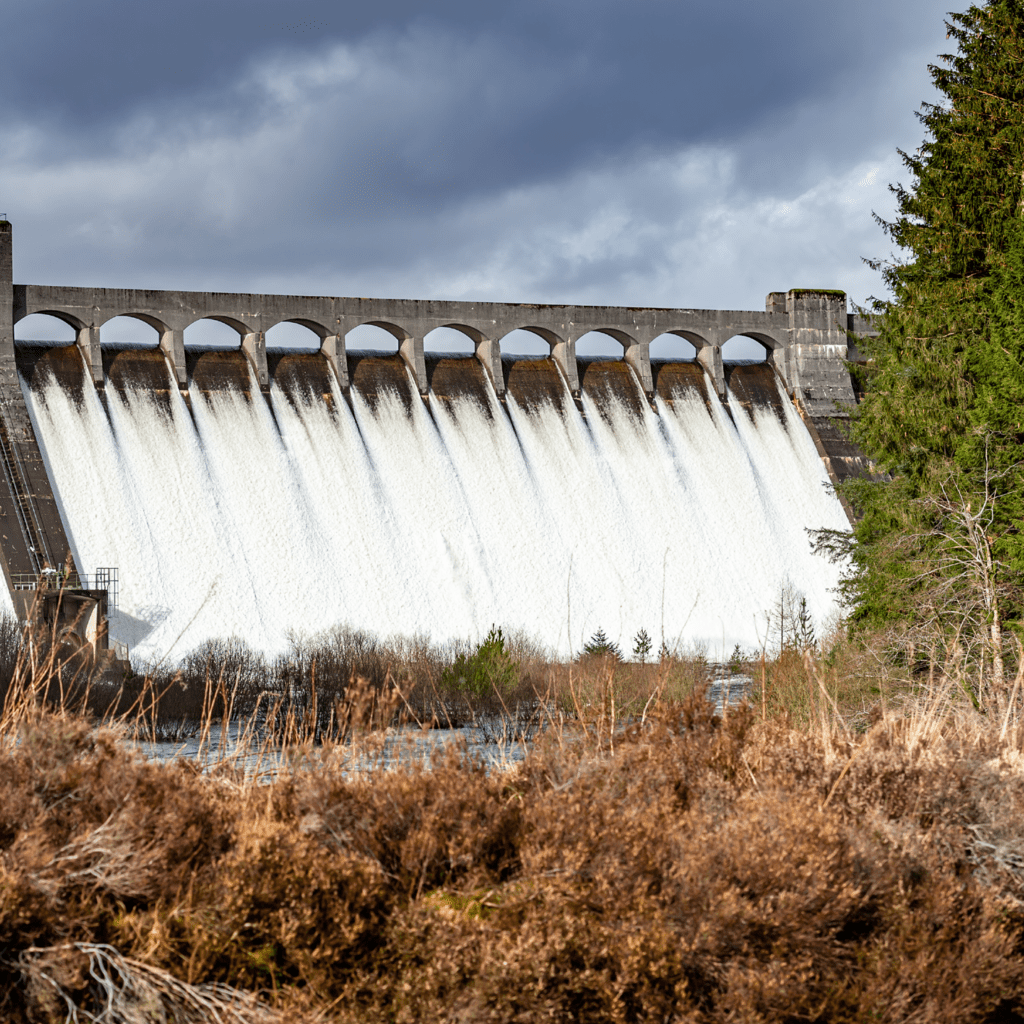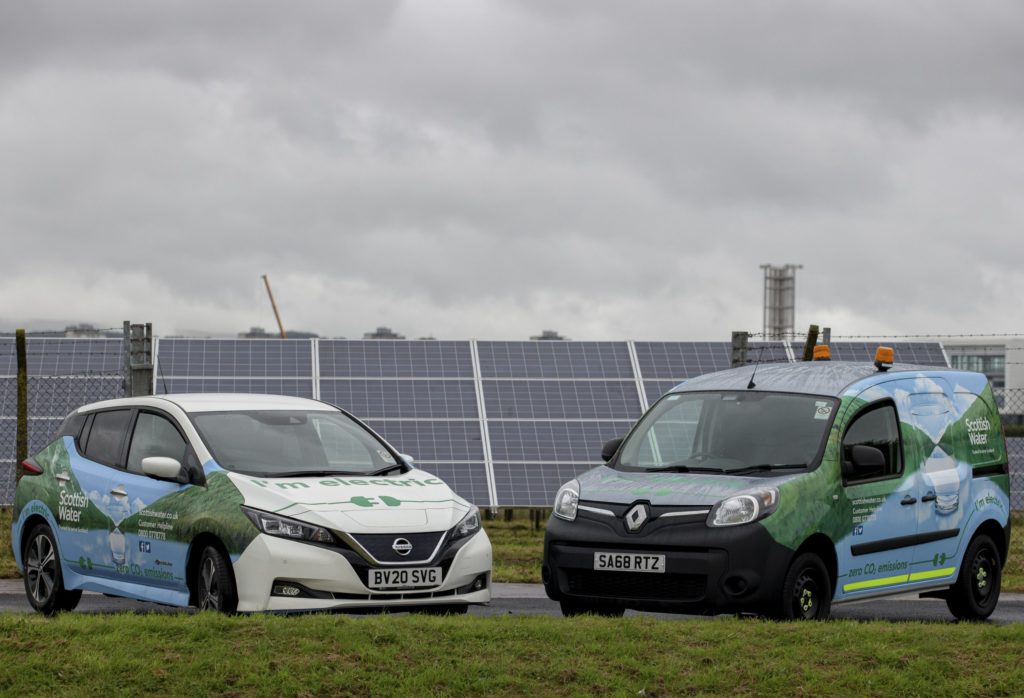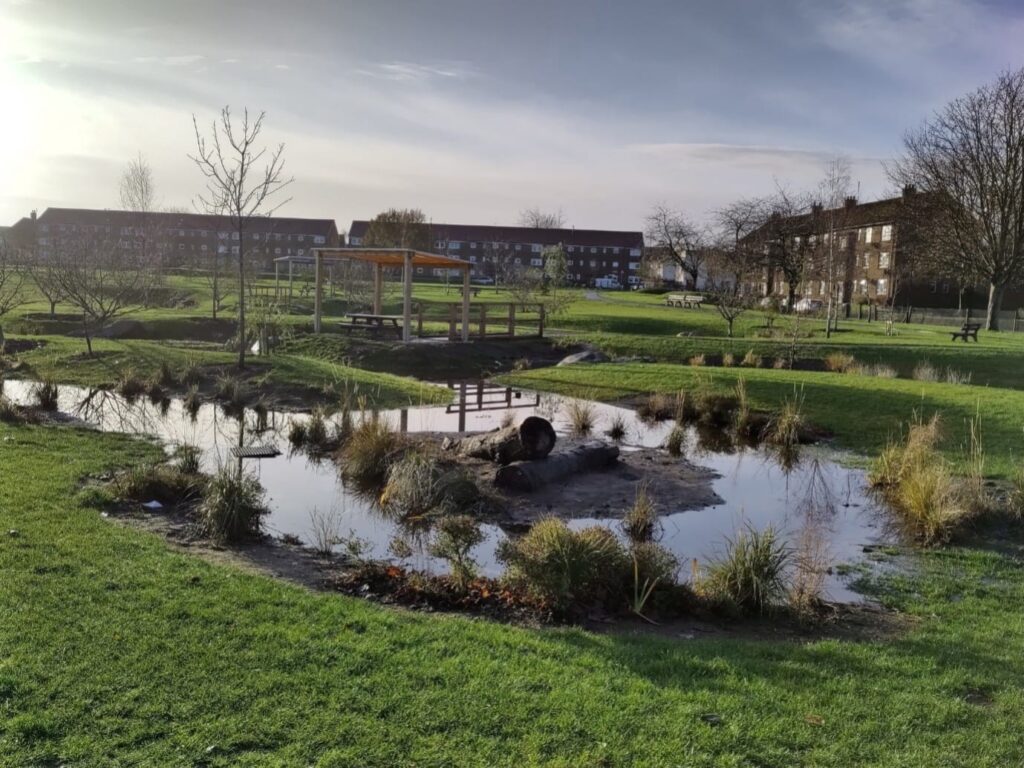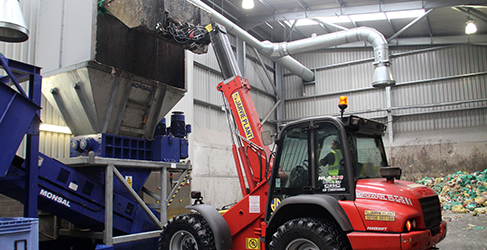
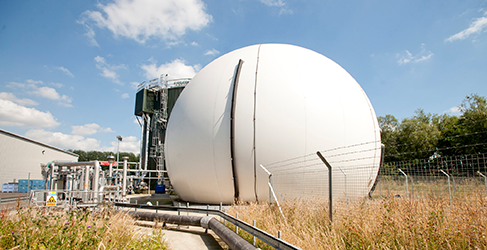
“We’re diverting huge amounts of food waste from going to landfill where it would break down to produce methane – a dangerous greenhouse gas.”
Colin Lindsay
Operations Manager, Scottish Water Horizons
Since 2010, Deerdykes has saved more than 170,000 tonnes of carbon. That’s like driving over six million miles in a car – or to the Moon and back 12 times.
The facility harnesses gas from food waste using anaerobic digestion to generate green energy using a combined heat and power engine (CHP).
Food waste is broken down in sealed, oxygen-depleted tanks to produce energy-rich biogas. This is then converted into electricity through the CHP engines, as well as a natural fertiliser for use in agricultural land spreading.
Colin Lindsay, Operations Manager at Scottish Water Horizons said: “The numbers are impressive but quite difficult to visualise – particularly if you try to imagine 500 million kettles being boiled at once, or driving six million miles in your car.
“There is the added bonus that we are diverting huge amounts of food waste from going to landfill where it would break down to produce methane – a dangerous greenhouse gas.”
Around a million tonnes of food is thrown away in Scotland each year. A number of local authorities across west-central Scotland transport waste to Deerdykes along with waste from many food producers and businesses.
Scottish Water Horizons is the commercial arm of Scottish Water and plays an important part in helping the organisation meet its Net Zero ambitions, by maximising opportunities for green energy production on Scottish Water sites.
Scottish Water was a proud participant at the recent COP 26 – the 2021 United Nations Climate Change Conference held in Glasgow.
As Scotland’s public water and waste water services provider, protecting and enhancing the environment is a priority. Scottish Water has already committed to reaching Net Zero by 2040 – five years ahead of the Scottish Government’s national targets.
As well as transforming the delivery of key services, Scottish Water works with a wide range of partners to contribute towards wider carbon reductions.





